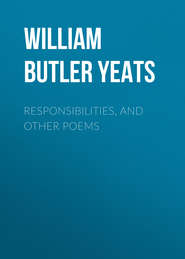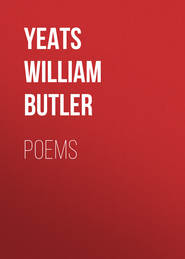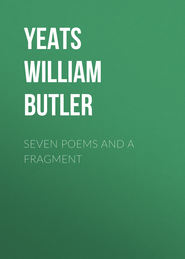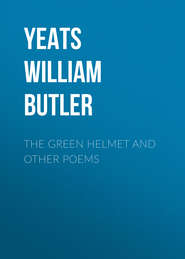По всем вопросам обращайтесь на: info@litportal.ru
(©) 2003-2024.
✖
Discoveries: A. Volume of Essays
Настройки чтения
Размер шрифта
Высота строк
Поля
All art is sensuous, but when a man puts only his contemplative nature, and his more vague desires into his art, the sensuous images through which it speaks become broken, fleeting, uncertain, or are chosen for their distance from general experience, and all grows unsubstantial & fantastic. When imagination moves in a dim world like the country of sleep in Love’s Nocturne and ‘Siren there winds her dizzy hair and sings’ we go to it for delight indeed but in our weariness. If we are to sojourn there that world must grow consistent with itself, emotion must be related to emotion by a system of ordered images, as in the Divine Comedy. It must grow to be symbolic, that is, for the soul can only achieve a distinct separated life where many related objects at once distinguish and arouse its energies in their fullness. All visionaries have entered into such a world in trances, and all ideal art has trance for warranty. Shelley seemed to Matthew Arnold to beat his ineffectual wings in the void, and I only made my pleasure in him contented pleasure by massing in my imagination his recurring images of towers and rivers, and caves with fountains in them, and that one star of his, till his world had grown solid underfoot and consistent enough for the soul’s habitation.
But even then I lacked something to compensate my imagination for geographical and historical reality, for the testimony of our ordinary senses, and found myself wishing for and trying to imagine, as I had also when reading Keats’ Endymion, a crowd of believers who could put into all those strange sights the strength of their belief and the rare testimony of their visions. A little crowd had been sufficient, and I would have had Shelley a sectary that his revelation might have found the only sufficient evidence of religion, miracle. All symbolic art should arise out of a real belief, and that it cannot do so in this age proves that this age is a road and not a resting place for the imaginative arts. I can only understand others by myself, and I am certain that there are many who are not moved as they desire to be by that solitary light burning in the tower of Prince Athanais, because it has not entered into men’s prayers nor lighted any through the sacred dark of religious contemplation.
Lyrical poems even when they but speak of emotions common to all need, if not a religious belief like the spiritual arts, a life that has leisure for itself, and a society that is quickly stirred that our emotion may be strengthened by the emotion of others. All circumstance that makes emotion at once dignified and visible, increases the poet’s power, and I think that is why I have always longed for some stringed instrument, and a listening audience not drawn out of the hurried streets but from a life where it would be natural to murmur over again the singer’s thought. When I heard Ivette Guilbert the other day, who has the lyre or as good, I was not content, for she sang among people whose life had nothing it could share with an exquisite art that should rise out of life as the blade out of the spearshaft, a song out of the mood, the fountain from its pool, all art out of the body, laughter from a happy company. I longed to make all things over again, that she might sing in some great hall, where there was no one that did not love life and speak of it continually.
THE HOLY PLACES
When all art was struck out of personality, whether as in our daily business or in the adventure of religion, there was little separation between holy and common things, and just as the arts themselves passed quickly from passion to divine contemplation, from the conversation of peasants to that of princes, the one song remembering the drunken miller and but half forgetting Cambynskan bold; so did a man feel himself near sacred presences when he turned his plough from the slope of Cruachmaa or of Olympus. The occupations and the places known to Homer or to Hesiod, those pure first artists, might, as it were, if but the fashioners hands had loosened, have changed before the poem’s end to symbols and vanished, winged and unweary, into the unchanging worlds where religion only can discover life as well as peace. A man of that unbroken day could have all the subtlety of Shelley, & yet use no image unknown among the common people, and speak no thought that was not a deduction from the common thought. Unless the discovery of legendary knowledge and the returning belief in miracle, or what we must needs call so, can bring once more a new belief in the sanctity of common ploughland, and new wonders that reward no difficult ecclesiastical routine but the common, wayward, spirited man, we may never see again a Shelley and a Dickens in the one body, but be broken to the end. We have grown jealous of the body, and we dress it in dull unshapely clothes, that we may cherish aspiration alone. Moliere being but the master of common sense lived ever in the common daylight, but Shakespeare could not, & Shakespeare seems to bring us to the very market-place, when we remember Shelley’s dizzy and Landor’s calm disdain of usual daily things. And at last we have Villiers de L’Isle Adam crying in the ecstasy of a supreme culture, of a supreme refusal, ‘as for living, our servants will do that for us.’ One of the means of loftiness, of marmorean stillness has been the choice of strange and far away places, for the scenery of art, but this choice has grown bitter to me, and there are moments when I cannot believe in the reality of imaginations that are not inset with the minute life of long familiar things and symbols and places. I have come to think of even Shakespeare’s journeys to Rome or to Verona as the outflowing of an unrest, a dissatisfaction with natural interests, an unstable equilibrium of the whole European mind that would not have come had Constantinople wall been built of better stone. I am orthodox and pray for a resurrection of the body, and am certain that a man should find his Holy Land where he first crept upon the floor, and that familiar woods and rivers should fade into symbol with so gradual a change that he never discover, no not even in ecstasy itself, that he is beyond space, and that time alone keeps him from Primum Mobile, the Supernal Eden, and the White Rose over all.











